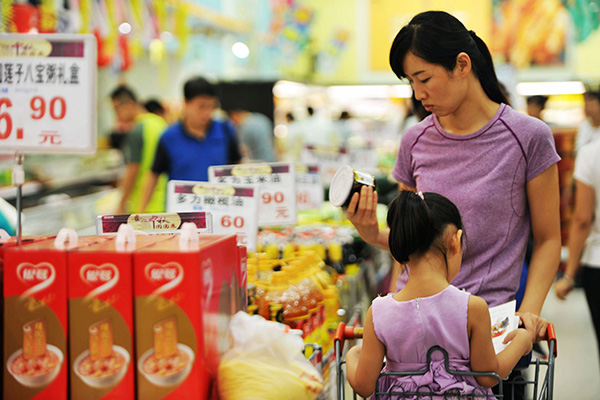New watchdog good for consumer rights protection
China Daily | Updated: 2018-03-15 07:15

China Central Television marks World Consumer Rights Day on March 15 each year with an annual gala that uses investigative reporting to name and shame unscrupulous retailers. Many brands, both domestic and foreign, have come under fire for either their shoddy goods or poor after-sale service and been forced to apologize and offer customers compensation.
Millions of Chinese consumers like to watch the program as it strikes a chord with them even though they know product quality problems cannot be solved overnight.
The fact that the vast rural areas are still being plagued with fake and shoddy products, which pose risks to the health and welfare of consumers there, points to the urgency of tackling such problems through improved governance and law enforcement.
Premier Li Keqiang stressed the importance of a sound business environment for high-quality development and called for more efforts to maintain market order in his report on government work on March 5, saying the government will work to increase the supplies of premium products and services through improved quality certification and strengthened oversight of food, drugs, and consumer and industrial products, among other things.
As part of the restructuring of government departments announced on Tuesday, the State Administration for Industry and Commerce, the General Administration of Quality Supervision, Inspection and Quarantine, and the China Food and Drug Administration are to be dismantled and their functions incorporated into one new supervisory department.
The new State market regulatory administration that is being set up will shoulder the responsibility for market supervision and management, market entity registration and market order, including examination and testing, certification and accreditation, with a specific supervisory body affiliated to it to keep a watchful eye on pharmaceutical drugs, a particularly sensitive area given their importance to people's well-being.
The history of consumer rights protection is often viewed as specific legal and administrative responses to quality-related crises and emergencies. For instance, the tainted milk scandal in 2008, which sparked public outrage, led to an overhaul of the industry and upgrading of the country's product tracking system. The latest moves aim to try and prevent such crises and better meet people's demands for safe, quality goods.
























